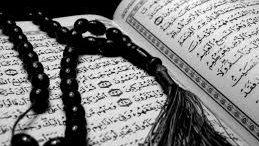Why Was Jumada al-Awwal Named So? The Story Behind the Frozen Water and the Islamic Legacy
Jumada al-Awwal, the fifth month of the Islamic lunar calendar, carries a name born from winter’s chill and the freezing of water, symbolizing a time when nature itself marked the flow of the year.

The month of Jumada al-Awwal stands as a living relic of early Arab culture, named during a season when water would freeze from the cold, giving the month its name derived from “jamad” — meaning dryness or freezing. When the lunar months were first named, it was wintertime, and the name stayed ever since.
The Arabs used to describe Jumada al-Awwal and Jumada al-Akhirah as months of drought and scarcity, reflecting the harsh climate and absence of rain. Ancient poets captured this essence vividly — as Uhaya bin al-Julah once said:
“When Jumada withholds its rain, my land shines with its thirsty pastures.”
Linguistically, “Jumada” is feminine in Arabic, hence the term “Jumada al-Awwal” (the first) and “Jumada al-Akhirah” (the last), not “second,” since there are only two months called Jumada.
Throughout history, Jumada al-Awwal witnessed pivotal events that shaped the Muslim world:
297 AH – The establishment of the Fatimid Caliphate in North Africa after Abu Abdullah al-Shi‘i pledged allegiance to Ubayd Allah al-Mahdi.
954 AH – The signing of a peace treaty between the Ottoman Empire and Austria under Sultan Suleiman the Magnificent, establishing a five-year truce.
1376 AH – The withdrawal of British and French troops from Egypt following the failure of the Tripartite Aggression alongside Israel.
Beyond its linguistic origins, Jumada al-Awwal remains a month deeply woven into the rhythm of Islamic heritage — a symbol of endurance, transition, and divine cycles that mark the passage of faith through time.
أوضحت عضو مركز الأزهر العالمي للفتوى الإلكترونية فضل ركعتي الفجر العظيم، وبيّنت حكم أدائهما إذا فات وقت الصلاة، مؤكدة أن أداء الفريضة أولًا هو الأصل، ثم تُقضى السنة بعدها إن أمكن.
الدكتور حسن القصبي، أستاذ الحديث بجامعة الأزهر، يفسر حديث النبي ﷺ «خُلقت من ضلع أعوج» مؤكداً أنه تكريم للمرأة وتأكيد على مكانتها في الإسلام لا انتقاص منها.
دار الإفتاء المصرية توضح أحكام الوضوء عند وجود الكحل في العين، وحكم الكلام أثناء الطهارة، مؤكدة ضرورة غسل الوجه كاملًا وبيان آداب الوضوء في الإسلام.
كشف مركز الأزهر العالمي للفتوى الإلكترونية عن عشرة آداب رفيعة ينبغي على المسلم التحلي بها عند معاملة كبار السن، مؤكدًا أن احترام الكبير من شيم الإسلام وأخلاق المؤمنين، ودليل على الرحمة والتواضع.




